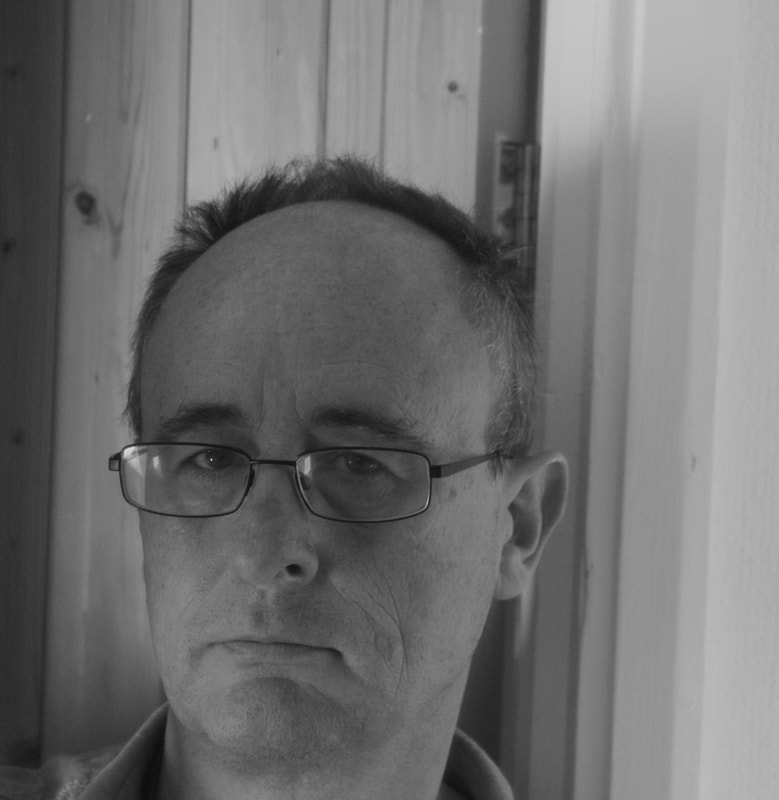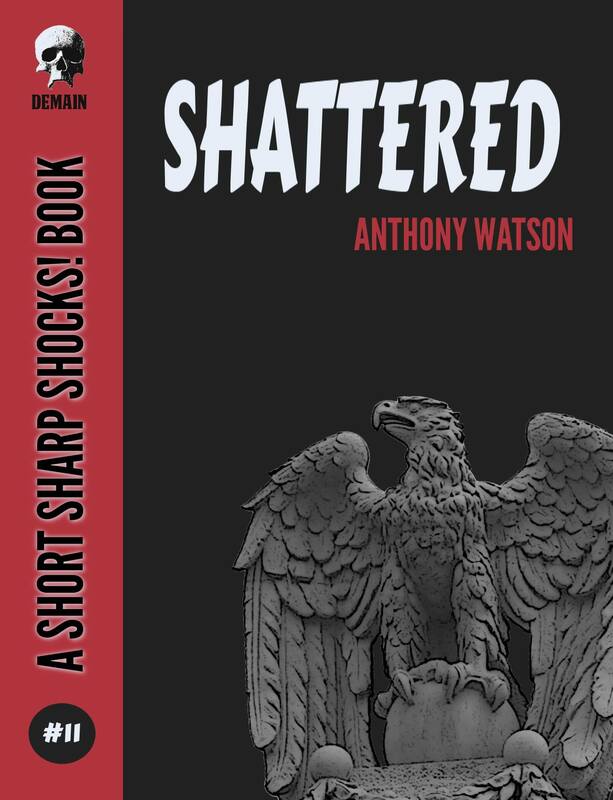|
|
|
Dean M. Drinkel and Anthony Watson first worked together on the anthology Darker Battlefields for Terry Grimwood’s The Exaggerated Press in 2016. This was followed up by Demain’s own The Darkest Battlefield in late 2018. They talked recently about Anthony’s Short Sharp Shocks! Entry Shattered – Book 11 in the series.
DEMAIN PUBLISHING: Great to speak to you again my friend – we don’t need to do a massive introduction to you or your work (as your previous interview is still available on this blog ha ha) so let’s get straight down to it. Can you tell us about Shattered and how you came to write it? ANTHONY WATSON: I seem to have fallen into writing horror stories set in the past and Shattered is no exception. It’s set in three different time periods and starts in Vienna in 1938 on Kristellnacht, with the Nazis flexing their muscles by way of despatching their Brownshirts to smash the windows of Jewish owned businesses. The story then takes a couple of leaps back in time to provide the history of one window in particular – and why breaking it was the worst possible thing to do. I’ve wanted to write a story based on those events for a while (I think I first became aware of Kristellnacht back in 1978 when the TV series Holocaust was broadcast) but it was only recently that I came up with the supernatural element to incorporate into the real life horrors. DP: Taking that all on board and because of the three time periods I suspect a lot of research was required? AW: I did do a lot of research – but I love that part of the writing process anyway so really enjoyed the whole thing. As well as the events of Kristellnacht itself, I also did a lot of research into Judaism and, most exciting of all, the history of glass making in 19th Century Eastern Europe. The research often throws up new ideas for the story. The significance of the number nine was something I uncovered whilst researching and was something I had to include in Shattered. DP: I love when authors drop little ‘secrets’ into their work – I’ve started doing that a lot recently myself – I’ve been heavily influenced by the works of John Fowles and Umberto Eco – such multi-layered stories they create – a rich tapestry –they are known for doing the same (and this is why every year I reread both The Magus and The Name Of The Rose as even now I am discovering new things)...so well done to you! When you were writing Shattered did you ever feel that you were actually one of the characters? AW: I always put myself into the characters when I’m writing, I find it’s the only way I can get the dialogue and reactions right. It’s quite possible I act out the scenes as I write but my wife hasn’t mentioned it so I’m guessing not. I am quite old, but not so old that I’ve experienced any of the events described in Shattered. That said, I have been to Vienna where most of the story is set. I find visiting new places is a great source of inspiration for writing and have set quite a few stories in locations I’ve actually visited. DP: Yes, I was in Vienna myself in 2017 and honestly when I read Shattered I felt as if I was back there! We’ve worked together a couple of times now, do you think you have a specific writing style? AW: Much as I might like to regard myself as a stylish writer, I’m really not. I’ve long since realised that any talent I have is not in creating beautiful, literary prose but in just telling a story with no frills – but hopefully some thrills. I have a pulpy heart; I love to read it and love to write it. I can appreciate subtlety and ambiguity as much as the next man but give me a monster to fight every time. I used to edit as I went but now I pretty much just let the words spill out onto the page, secure in the knowledge that I will fix things in editing. Given I tend to go for supernatural horror, I find exposition the hardest thing to write. Firstly because it’s really hard to make it sound natural and realistic and secondly because it’s where you’re asking the reader to go with whatever outlandish idea you’re presenting them with. If you can’t convince them then all is lost. DP: Indeed, indeed...are you working on anything right now? AW: I’m still working in two big projects at the moment. First is my novel, The Fallen, which I’m 65000 words into with around another 30000 to go. It’s set in three different time periods, modern day, 1942 and 16th Century Russia but with an overarching linked narrative. It’s got scientists, sailors, mercenaries, fallen angels, lots of snow and big explosions. (I’ve just realised actually that the narrative of the novel follows the same structure as Shattered: five sections going back in time before returning to where it begins.) Second is a project I’m working on with Ben Jones called The Damocles Papers. It’s a collection of stories featuring a special ops organisation during World War Two who fight against the occult and supernatural forces of the Nazis. I can honestly say that I’ve never enjoyed a writing experience so much as this one; we’ve written stories individually, collaborated on others and generally had a great time sparking ideas off each other. Just over a year into it and we’re getting close to having everything written. DP: Well done you! They both sound really exciting and a little spoiler for anybody (ha ha) reading this – Ben Jones has also contributed a story to the Short Sharp Shocks! Series –more on that in a couple of weeks. Please let us know how you get on with those projects Anthony. I’m guessing then that writer’s block doesn’t really come into it? AW: Fortunately, no. That said, I’ve frequently written myself into situations where a way out hasn’t presented itself immediately. It usually just requires some time on the back boiler while I work on something else for the solution to present itself. DP: Yeah, me too – it’s the best to handle even a hint that it’s on the horizon...I wonder then do you write an outline before sitting down and working on something new? AW: I don’t really do organisation…it’s very rare that a story will present itself in its entirety (although it has happened) and quite often I’ll just have a general idea about what I’m going to write. It’s certainly true for me that the act of writing something draws the story out – as if I’m uncovering it as I go. I’ll often have specific scenes or set-pieces in mind with the problems arising getting between them - but that’s all part of the creative process. I never have anything as formal as a written outline but do have notebooks filled with random scribblings and ideas. DP: And I bet those notebooks are brimming with ideas...wouldn’t mind seeing them! So, what’s your favourite genre to write in and do you think you learnt anything from writing Shattered? AW: Horror definitely – and, it would seem, historical horror. As a result of researching and writing Shattered I now know a lot more about Jewish wedding ceremonies and glass making but also about structuring a story for creative effect. Thank you so much for your time Anthony and all the best with Shattered. If you want to connect directly with Anthony, please visit: Website: https://anthony-watson.blogspot.com/ Other Social Media: https://www.facebook.com/anthony.watson.182
0 Comments
Leave a Reply. |
CategoriesArchives
November 2023
AuthorDean M. Drinkel |


